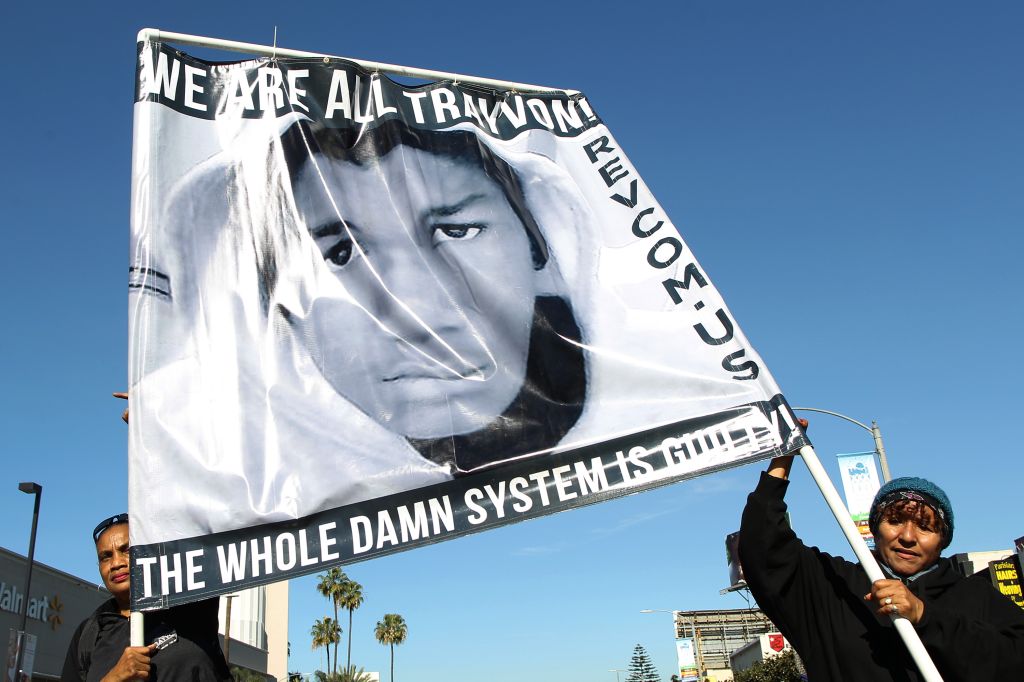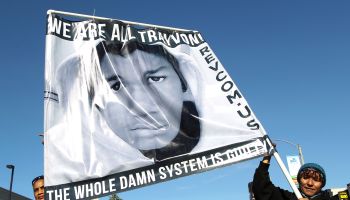
Source: David McNew / Getty
In 2016, Attika J. Torrence worked as a field producer for Time: The Kalief Browder Story. On Friday (April 20), his latest project, Rest in Power: The Trayvon Martin Story will debut at the Tribeca Film Festival. BK Reader caught up with Torrence to discuss how his upbringing shaped his career and the importance of Black people telling Black stories. Here’s what we learned:
1 Torrence was born and raised in Bed-Stuy.
“My family is from Bed-Stuy, but a major chunk of my life, from age 10 to 16, I grew up in Liberia. I had a great childhood and Liberia was an extension of Bedford Stuyvesant. I’ve never wanted to live anywhere else in Brooklyn. I’m a Bed-Stuy boy, and there’s nothing like it. Every other area to me is missing something, and Bed-Stuy has it all. My parents were founding members of “The East,” a pan-African organization, which included a school, Imani Daycare Center and Uhuru Sasa. We lived by the seven principles, the Nguzo Saba. So, long before Wakanda was a thing, we really lived that in Bedford Stuyvesant, and moving to Liberia was an extension of that.”
2 When he was first asked to be involved with The Trayvon Martin Story, he hesitated.
“I was asked to work on Rest in Power as a field producer, and I initially had some reservations about it, because it’s a heavy project, and I wanted to make sure the story was told properly. So I took a moment. But I said yes, because I had some familiarity with the executive producers and directors for Time: The Kalief Browder Story, and I know they genuinely want to tell the best story they can. While on the project, my role was bolstered to a co-producer, which is pretty cool, because I had a lot of input as it related to some of the interviews, questions asked, and the edits. That’s where I really wanted to be, because…part of me wanting to do this project was so that I had a voice. I’m not the voice; but I am a voice, and I wanted to make sure this project was told in the most sincere way.”
3 For him, working on the film magnified the importance of Black people telling their own stories.
“Working on Rest in Power, we interviewed people who support George Zimmerman for killing a 17-year-old boy that went walking to the store to buy Skittles and an ice tea. And they’re saying, ‘Well, I hope people will think about this the next time some guy breaks into their home and rapes their wife, I know they’re going to hope they have a neighborhood watch person on patrol like George Zimmerman.’”
Read the full interview at BK Reader.
















